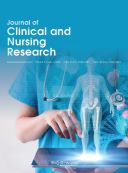Abstract
Objective: To investigate the clinical efficacy of acupuncture combined with emotional intervention in patients with post-stroke depression (PSD). Methods: A total of 100 patients with PSD who met the inclusion criteria were randomly divided into an experimental group (50 cases) and a control group (50 cases) using the random number table method, and the enrollment was in order of admission time. The control group used conventional treatment of oral antidepressant Deanxit tablets (0.5 mg flupenthixol + 10 mg melitracen) with the dose appropriately adjusted according to the patient’s medication effect, and modern rehabilitation treatment given selectively according to the patient’s condition. The experimental group had similar treatment as the control group with the addition of traditional Chinese medicine (TCM) acupuncture combined with emotional intervention. The application effects of both groups before and after treatment were verified using the Hamilton Depression Rating Scale (Ham-D), National Institutes of Health Stroke Scale (NIHSS), and Activities of Daily Living (ADL), serotonin levels were measured, and statistical analyses were carried out. Results: The total effective rate of patients in the experimental group was significantly higher than that in the control group, and the Ham-D score, NIHSS score, ADL score, and serotonin level after treatment were significantly higher than those in the control group, and the difference between the two groups was statistically significant (P < 0.05). Conclusion: For patients with PSD, adding TCM acupuncture with emotional intervention on top of conventional treatment significantly improve the clinical efficacy and better improve the daily life ability of patients.
References
Drevets WC, Price JL, Furey ML, 2008, Brain Structural and Functional Abnormalities in Mood Disorders: Implications for Neurocircuitry Models of Depression. Brain Structure & Function, 213(1-2): 93–118.
Liu Y, Bei Y, 2020, Analysis of the Effect of Case Management Model Combined with Cognitive Nursing Intervention in Patients with Depression After Stroke. Journal of Qiqihar Medical College, 41(14): 1848–1849.
Cheng Y, Yang W, 2020, Clinical Efficacy of Blood Fu Zhuyu Decoction Combined with Fluvoxamine in the Treatment of Depression After Stroke and Its Effect on Plasma Homocysteine Levels. Clinical Journal of Traditional Chinese Medicine, 32(09): 1698–1702.
Liu Y, 2020, Effects of Repeated Transcranial Magnetic Stimulation on Upper Limb Motor Function Recovery and Quality of Life in Stroke Patients. Journal of Changchun University of Chinese Medicine, 36(5): 965–967.
Wang L, 2019, Tongdu Diaoshen Acupuncture Method for the Treatment of Post-Ischemic Stroke Depression. Journal of Traditional Chinese Medicine, 34(7): 1555–1558.
Zhou X, Ren L, Gao Y, et al, 2018, Meta-Score of Acupuncture on Improvement of Depressive State in Patients with Depression After Stroke. Chinese Journal of Traditional Chinese Medicine, 36(12): 2875–2879.
Liu J, 2021, A Meta-Analysis of Emotional Nursing in the Treatment of Post-Stroke Depressive Disorder. Chinese Medical Science, 5(4): 36–39.
